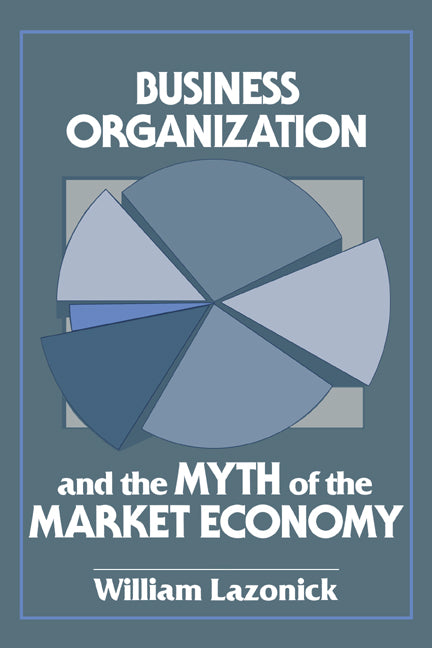Freshly Printed - allow 6 days lead
Couldn't load pickup availability
Business Organization and the Myth of the Market Economy
Explains the transitions in twentieth-century industrial leadership in terms of changing business investment strategies and organizational structures.
William Lazonick (Author)
9780521447881, Cambridge University Press
Paperback, published 28 May 1993
392 pages, 6 b/w illus.
22.9 x 15.2 x 2.2 cm, 0.57 kg
'Lazonick successfully marries economic theory to the history of technology and business organization … He then applies this blend of insights to contemporary issues of economic growth in Japan and relative decline in Britain and America. The result is a controversial but richly informative analysis - almost an intellectual hand grenade tossed into contemporary discussions. It is hard to think of another scholar who could match the combination of boldness, graceful writing, and intellectual challenge.' Thomas McCraw, Harvard University
This book explains the transitions in twentieth-century industrial leadership from Britain to the United States and, most recently, to Japan, in terms of the changing business investment strategies and organizational structures in these nations. The author criticizes economists for failing to understand these historical changes. The book shows that this intellectual failure is not inherent in the discipline of economics; there are important traditions in economic thought that the mainstream of the economics profession has simply ignored.
Acknowledgments
Introduction: the wealth of three nations
Part I. Economic Institutions and Economic Performance: 1. Business organization and competitive advantage
2. Institutional foundations of industrial dominance and decline
3. Organizations and markets in capitalist development
Part II. Intellectual Foundations and Intellectual Constraints: 4. The theory and history of capitalist development
5. The making of the market mentality
Part III. 'The Marvels of the Market' Versus 'The Visible Hand': 6. The innovative business organization and transaction cost theory
7. Lending the economic institutions of capitalism a visible hand
Part IV. Overcoming Intellectual Constraints: 8. Business organization and economic theory
9. Rigor and relevance in economics.
Subject Areas: Economic theory & philosophy [KCA]


